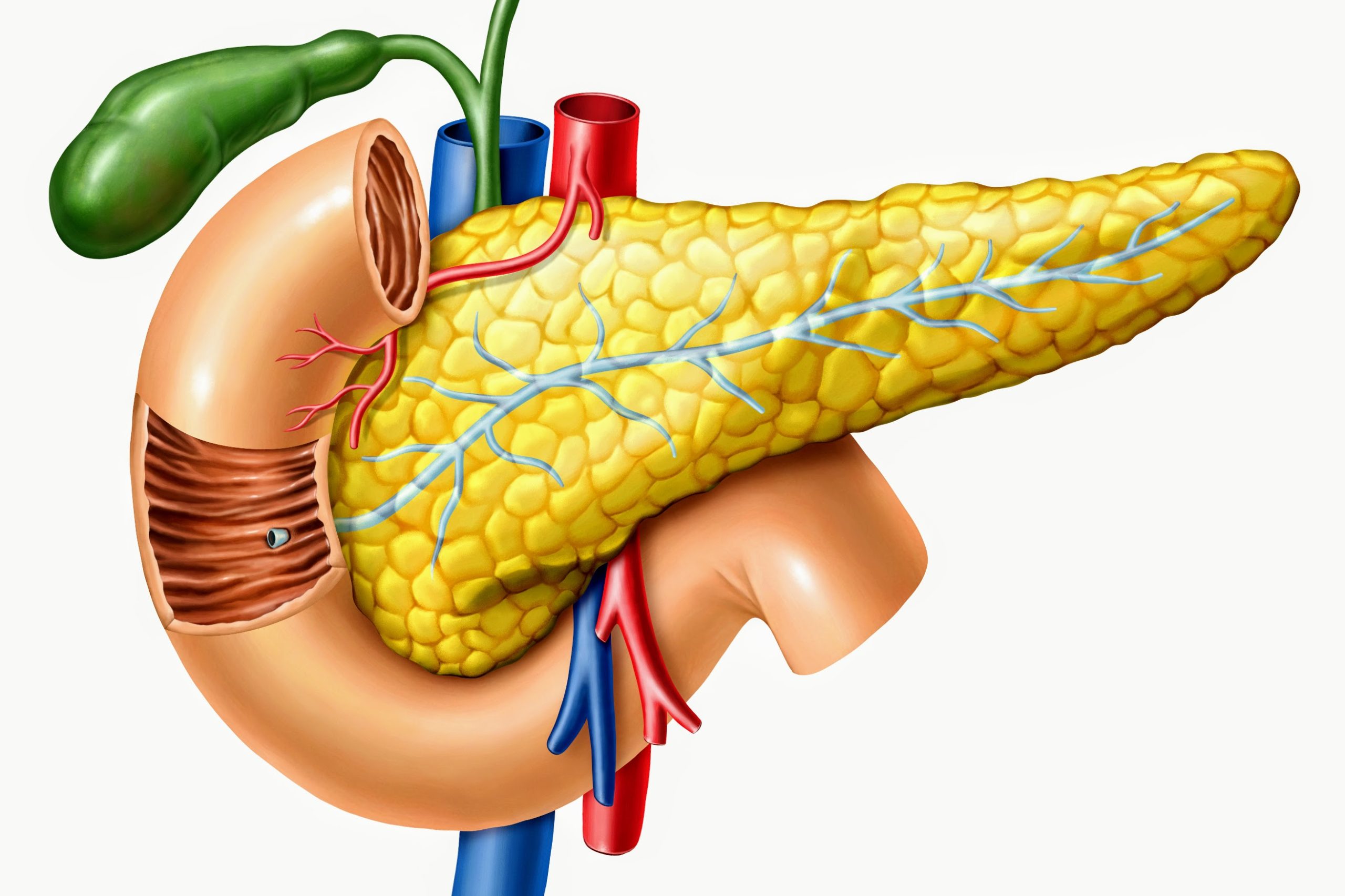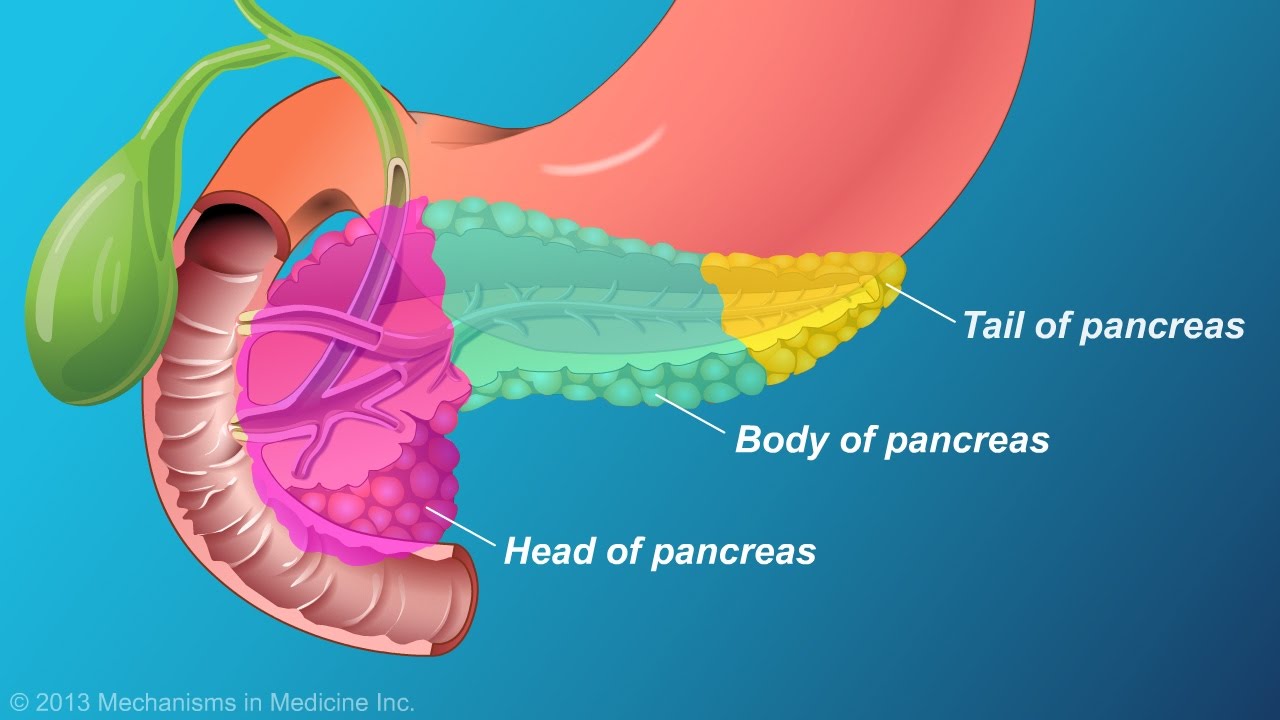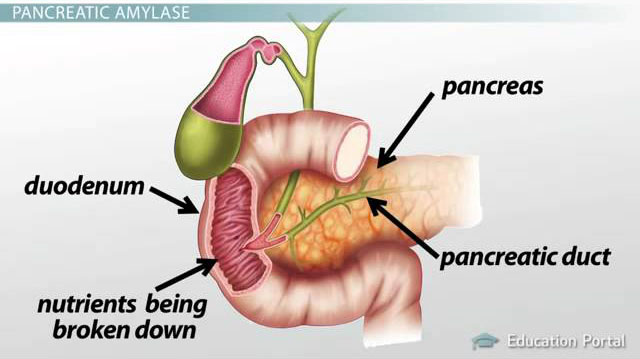Exocrine Function of the Pancreas
On This Page: Exocrine Role Of The Pancreas
Jump To Section
The Pancreas Exocrine Role Produces Digestive Enzymes
The pancreas performs two essential purposes. The “Exocrine Function” produces and secretes digestive enzymes and its “Endocrine Function” produces hormones that control healthy levels of blood sugar (glucose) in the bloodstream. The exocrine cells comprise over 90% of the pancreas area.
Over 90% of pancreatic cancers arise within the exocrine area of the pancreas. Over 90% of exocrine pancreas cancers are referred to as Adenocarcinoma of the Pancreas which has the lowest survival rate of all major types of cancer and accounts for one-third of annual cancer related deaths in the US (2021 Statistic).

What Role Do Digestive Enzymes Perform?
Digestive enzymes are vital to the healthy digestion of foods. Digestion is the process of breaking-down food into fats, proteins, and carbohydrates so those respective nutrients can be fully absorbed into the bloodstream to provide the body’s energy needs.
In a healthy digestive system, the digestive enzymes are “not activated” until entering the Duodenum at the beginning of the small intestine where they become “fully activated” to begin breaking down food into respective nutrients. If the digestion system malfunctions and activates the digestive enzymes before leaving the pancreas, those active enzymes can actually begin “digesting the pancreas itself” which will cause a serious inflammation of the pancreas that can lead to “pancreatitis”.
What Are The Types of Digestive Enzymes?
Lipase Enzymes. It works with liver bile to break-down fats. If the liver does not produce enough Lipase the body will have difficulty absorbing fat and will be lacking fat-soluble vitamins could include Vitamins A, D, E, and K. The symptoms of poor fat absorption will likely include diarrhea and fatty bowel movements.
Amylase Enzymes. It breaks-down carbohydrates (starches) into sugar molecules. A deficient amount of Amylase can result in diarrhea caused by undigested carbohydrates.
Protease Enzymes. It breaks-down proteins into amino acids which helps to keep bacteria, yeast, and protozoa out of the the intestines. A deficient amount of Protease can lead to toxicity in the intestines.
Note. There is an underlying bicarbonate secretion going into the small intestine from the stomach. It is vital to neutralize acid coming from the stomach. If there is a markedly compromised absorption of nutrients , malnutrition can ensue.
If the pancreas does not produce enough of a specific digestive enzyme(s) it can lead to Pancreatic Insufficiency.
Other Sources Describing The Exocrine Function of The Pancreas:
This article discusses the exocrine function of the pancreas which is the production of digestive enzymes including Lipase, Protease, and Amylase digestive enzymes and how they perform. This information is intended as educational information only and is not intended to be a substitute for securing your own professional medical advice, opinion, diagnosis, or professional medical treatment. We do not guarantee the accuracy of such educational information. When using this website, you agree to its term and conditions of use. Always consult with your physician or physicians for advice, diagnosis, and treatment


